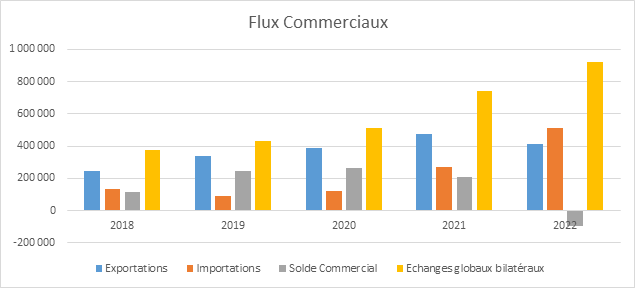Continent: Europe
Official name: Kingdom of Belgium
Nature of the regime: Constitutional monarchy
Head of Federal State: His Majesty King Philippe I (since July 21, 2013, "King of the Belgians)
Area: 30,688 km2
Currency: euro
Population: 11.7 million inhabitants
Capital: Brussels
Main cities: Antwerp (527,763 inhabitants), Ghent (263,614 inhabitants), Charleroi (202,376 inhabitants), Liège (196,623 inhabitants)
Official languages: French, Dutch, German
Agreements and Conventions
As part of the Ivorian-Belgian cooperation, several Agreements and Conventions have been signed between these two (02) countries in the various fields mentioned:
October 25, 2017 in Abidjan
- Agreement in the field of air transport,
- Agreement in the field of environmental protection,
- Agreement in the field of construction of engineering structures,
- Agreement in the field of exports,
- Agreement in the field of investment promotion and facilitation,
- Agreement in the field of energy,
- Agreement in the field of infrastructure and development of the electricity sector,
- Agreement in the field of the port sector,
- Signature of a memorandum of understanding on the stationing of the Belgian military forces at Abidjan airport as part of their logistical support to the Belgian forces involved in the Malian crisis (February 14, 2013);
- Signature in Brussels of the minutes of the exchange of instruments of ratification of the Agreement on the Promotion and Reciprocal Protection of Investments (May 15, 2013);
- Signing of the bilateral debt restructuring agreement of Cote d’Ivoire in Brussels (February 27, 2012). It is in accordance with the minutes of Agreement XI signed on 15 November 2011 between Cote d’Ivoire and Paris Club creditors. This agreement includes cancellations and rescheduling over the consolidation period for an amount of 25.26 billion of CFAF. Belgium cancelled old rescheduled debts of Cote d’Ivoire at the HIPC completion point;
- Signature of a bilateral debt cancellation agreement for an amount of 202,707,120.57 euros, or 153 billion of CFAF (October 02, 2012) between Cote d’Ivoire and Belgium. This convention implements a bilateral agreement concluded within the Paris Club on June 29, 2012, following the achievement of the completion point of the Heavily Indebted Poor Countries (HIPC) initiative by Cote d’Ivoire;
- Signature of a partnership agreement between the Port Authority of San Pedro (PASP) and the Port of Antwerp (Belgian port), November 17, 2011. The Port of San Pedro thus joins the international network of the second most important port in Europe, of which it is the relay on the African continent. This agreement covers technical assistance, investment, training and the development of trade relations in the port of San Pedro;
- Protocol amending the Abidjan Air Agreement (April 31, 2002);
- Additional Protocol to the Maritime Agreement between the Republic of Cote d’Ivoire and the Belgo-Luxembourg Economic Union, signed in Abidjan on September 28, 1999;
- Agreement on the reciprocal promotion and protection of investments between Cote d’Ivoire and the Belgo-Luxembourg Union signed on November 25, 1977;
- Maritime Agreement between the Belgo-Luxembourg Union and Cote d’Ivoire (November 25, 1977);
- Tax Convention for the avoidance of double taxation (November 25, 1977);
- Additional Protocol to the Maritime Agreement between the Republic of Cote d’Ivoire and the Belgo-Luxembourg Economic Union, signed in Abidjan on November 25, 1977 and ratified by Decree No. 79-280 of April 4, 1979;
- General Convention on Technical Cooperation between the Kingdom of Belgium and the Republic of Cote d’Ivoire (June 7, 1968, Abidjan);
Agreement on cooperation in the field of air transport between the Republic of Cote d’Ivoire and the Kingdom of Belgium signed at Abidjan on September 22, 1963 ratified by Decree No. 80-499 of June 3, 1980.
Cote d’Ivoire could further strengthen its bilateral cooperation with Belgium, particularly in the fields of transport (air and port), engineering, agriculture and processing of agricultural products.
From 2014 to 2016, Belgian direct investments amounted to only 6.35 billion of CFAF (about 9.9 million euros), according to the Centre for Investment Promotion in Cote d’Ivoire (CEPICI), relegating Belgium to 5th place among European investors in the country.
- The main products exported are : cocoa, banana, rubber and coffee.
B. The main imported products are : industrial products, pharmaceuticals, plastics, transport equipment, iron, cast iron and steel.
|
Trade flows Cote d’Ivoire-Belgium (Value in millions of CFA francs) |
|||||
|
Years |
2018 |
2019 |
2020 |
2021 |
2022 |
|
Exports |
244 200 |
338 800 |
390 100 |
474 000 |
414 100 |
|
Imports |
131 000 |
91 400 |
124 000 |
268 500 |
510 900 |
|
Trade balance |
113 200 |
247 400 |
266 100 |
205 500 |
-96 800 |
|
Global bilateral exchanges |
375 200 |
430 200 |
514 100 |
742 500 |
925 000 |
Sources : DGE-DPPSE

Sources : (General Directorate of Economy) DGE-DPPSE (Economic Forecasts, Policies and Statistics Directorate)
- The value of bilateral trade reached 925,000 million of CFAF in 2022 compared to 742,500 million of CFAF in 2021;
- Over the period 2018-2022, the average value of Ivorian exports is estimated at 372,200 million of CFAF /year against 225,200 million of CFAF /year for imports;
- Over the period 2018-2022, the trade balance is in surplus for Cote d’Ivoire except for the year 2022.

